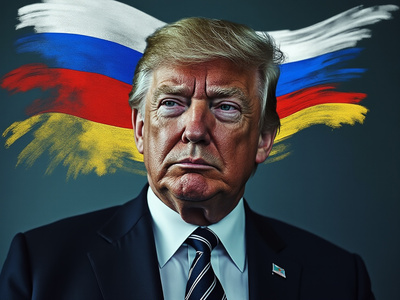Trump's Trade Strategy: An Analysis of Recent Tariffs
Exploring the implications and strategic motivations behind President Trump's tariff implementation.
In April 2025, former President Donald Trump has implemented a series of tariffs that are reshaping trade discussions both domestically and internationally.
The tariffs, aimed particularly at goods imported from several countries, including China and certain European nations, seek to bolster American manufacturing and reduce trade deficits.
Economic experts have noted that tariffs have been a central aspect of Trump’s trade policy, aligning with his stated objectives of prioritizing American industry.
The tariffs have been met with mixed reactions from various sectors of the economy, with some American companies reporting short-term benefits from increased domestic production, while others have expressed concerns regarding rising costs for consumers and potential retaliation from trade partners.
The agricultural sector, in particular, has faced challenges, with certain products affected by retaliatory tariffs from countries like Canada and Mexico.
Trump's approach to tariffs follows a broader strategy aimed at negotiating better trade deals that he argues are more favorable to the United States.
This strategy includes pressure tactics, where the imposition of tariffs serves as leverage in negotiations.
The former president has positioned these measures as a means to address what he characterizes as unfair trade practices that disadvantage American workers and businesses.
Political analysts have pointed out that Trump's tariffs are not merely economic tools but also play into his political base's sentiments towards globalization and trade frameworks.
By appealing to voters who feel left behind by previous trade agreements, Trump's administration aims to galvanize support as he prepares for potential future electoral campaigns.
The broader implications of these tariffs extend into the international political landscape, with various nations recalibrating their trade policies in response to the shifting U.S. position.
Observers note that the state of global trade relations is under significant strain due to these developments, and many countries are closely monitoring the outcomes of Trump's tariff strategy as it unfolds.
The tariffs, aimed particularly at goods imported from several countries, including China and certain European nations, seek to bolster American manufacturing and reduce trade deficits.
Economic experts have noted that tariffs have been a central aspect of Trump’s trade policy, aligning with his stated objectives of prioritizing American industry.
The tariffs have been met with mixed reactions from various sectors of the economy, with some American companies reporting short-term benefits from increased domestic production, while others have expressed concerns regarding rising costs for consumers and potential retaliation from trade partners.
The agricultural sector, in particular, has faced challenges, with certain products affected by retaliatory tariffs from countries like Canada and Mexico.
Trump's approach to tariffs follows a broader strategy aimed at negotiating better trade deals that he argues are more favorable to the United States.
This strategy includes pressure tactics, where the imposition of tariffs serves as leverage in negotiations.
The former president has positioned these measures as a means to address what he characterizes as unfair trade practices that disadvantage American workers and businesses.
Political analysts have pointed out that Trump's tariffs are not merely economic tools but also play into his political base's sentiments towards globalization and trade frameworks.
By appealing to voters who feel left behind by previous trade agreements, Trump's administration aims to galvanize support as he prepares for potential future electoral campaigns.
The broader implications of these tariffs extend into the international political landscape, with various nations recalibrating their trade policies in response to the shifting U.S. position.
Observers note that the state of global trade relations is under significant strain due to these developments, and many countries are closely monitoring the outcomes of Trump's tariff strategy as it unfolds.
AI Disclaimer: An advanced artificial intelligence (AI) system generated the content of this page on its own. This innovative technology conducts extensive research from a variety of reliable sources, performs rigorous fact-checking and verification, cleans up and balances biased or manipulated content, and presents a minimal factual summary that is just enough yet essential for you to function as an informed and educated citizen. Please keep in mind, however, that this system is an evolving technology, and as a result, the article may contain accidental inaccuracies or errors. We urge you to help us improve our site by reporting any inaccuracies you find using the "Contact Us" link at the bottom of this page. Your helpful feedback helps us improve our system and deliver more precise content. When you find an article of interest here, please look for the full and extensive coverage of this topic in traditional news sources, as they are written by professional journalists that we try to support, not replace. We appreciate your understanding and assistance.










